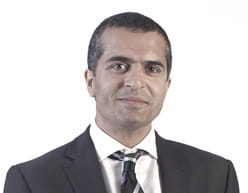The United Arab Emirates is a country that takes a notoriously dim view of people causing offence to others. What may seem like trivial words and actions to expats are taken very seriously by the National Courts. The recent shift in global attention to the Covid-19 pandemic has once again highlighted the importance of behaving properly in the UAE.
The strong stance on online behaviour has continued to receive enhanced press coverage over the last few years in the wake of a number of significant cases. In 2018, an American citizen in Dubai faced an AED 250,000 fine or up to 7 years in prison, as well as eventual deportation, for using a derogatory insult on Instagram which his estranged wife believed was referring to her. Although he did not direct the insult against a specific person, it was enough that a generally offensive term was used.
Prior to the outbreak of the Covid-19 pandemic, the most recent case to receive extensive media spotlight was that of a British woman who had her passport confiscated and faced up to two years in prison, and an AED 250,000 fine, for calling her ex-husband's new wife a 'horse' in comments on Facebook almost three years ago. This was despite her writing the comments while she was outside the UAE. She was ultimately allowed to leave the UAE after being convicted of a misdemeanour and being ordered to pay an AED 3,000 fine.
However, given the gravity of the Covid-19 pandemic currently sweeping the globe, there has once again been an expanded focus on the potential consequences for those who misuse social media in the country. A week ago, the UAE Attorney-General Dr Hamad Al Shamsi stated that all individuals who spread rumours about coronavirus on social media may be temporarily imprisoned.
The Attorney General stated that rumourmongers may be jailed for a minimum term of a year if they spread rumours punishable by law that are considered a crime. However, it may also be less than a year depending on the particular crime they commit and this will be decided "proportionally to the panic caused by the rumours".
Referring specifically to the extra vigilance of the UAE authorities at this time, he warned that the prosecution and criminal investigation bodies were looking out for audio and video clips containing "false and incorrect information about the degree of spread of the coronavirus in the UAE or about measures taken by state agencies to deal with the spread of the disease".
“These videos include allegations about measures to impose curfew or control residents' daily lives, which are rumours punishable by law, and we confirm that anybody who commits such a crime will face a severe punishment,” he said whilst calling on members of the public not to be taken in by these rumours.Defamatory remarks made on social media or by any other electronic means can be charged under the UAE Criminal Law or the Cyber Crime Federal Law No. 5 of 2012 (the CCL). The CCL broadly addresses information technology (IT) security in relation to state security, political stability, morality and proper conduct and various financial and commercial issues. The law aims to curb the use of IT which is disrespectful to Islam or activities that are inconsistent with public morals and good conduct.
The law essentially seeks to apply the same penalties to actions and comments that occur in the virtual world as those that occur in real life. This can have potentially devastating effects; the maximum penalty for offending a person online is imprisonment and/or a fine of up to AED 500,000, and can include potential deportation for expats.
Expats continuing to be caught up in many extreme cases under the CCL highlight the dangers for employers. With only around 12% of the population being local Emiratis, many companies (both local and foreign) employ large numbers of expat workers. These workers bring their own local customs and different cultures, a reason for the huge diversity that can be found in the UAE. Employers can teach their employees about local customs and the danger of causing offence; however, in practical terms it will be up to the individual to respect and adhere to this.
None of this is new to the UAE. The Penal Code makes defamation a criminal offence. The previous Cyber Crimes Law (from 2006), contained similar provisions relating to material contrary to public morals. The spotlight on these recent cases, and the all-consuming news profile of the Covid-19 pandemic, merely underline once again the fact that behaviour that is not accepted in the real world will not be accepted in the virtual world.

